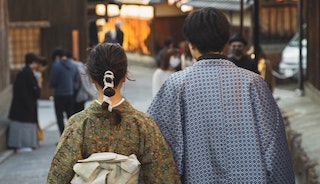Sep 18 (News On Japan) - In many parts of the world, the Japanese education system is held up as a model of discipline, industry, and the cultivation of the whole person.

It has also inspired generations of global learning fads, with imported ideas and practices spread almost worldwide, and we can understand how today’s global learning niche markets reflect the core principles behind Japanese education if we study what has made the Japanese system ‘work.’ For students needing assistance with their academic work, Academized professional essay writing service can be an excellent resource. Academized offers expert writing help, ensuring students can manage their workloads effectively while learning and growing.
Focus on Holistic Development
Balancing Academics and Social Skills
The holistic approach to education in Japan is another strength of the system. The objective is not simply to produce academically successful graduates, but also to develop social skills, a sense of respect, and moral values alongside intellectual growth. At school, children are encouraged to participate in activities and projects that require them to collaborate with peers. This helps them become active members of their learning community and teaches them the value of teamwork and cooperation from an early age.
By contrast, education systems in many Western countries have traditionally favoured academics at the expense of other developmental domains. However, worldwide, there is an increasing recognition of the wisdom of this more balanced approach and many education systems are increasingly adopting programmes that support students to develop their potential beyond their academic abilities.
Emphasis on Discipline and Self-Responsibility
Students Taking Ownership of Their Learning Environment
Discipline is strong when it comes to punishing students, but there is also reward for hard work. Children are made to feel responsible for their classroom as well as the overall school environment, so students throughout the grades have cleaning duties and participate in organising events. This ensures that the children stay focused and work hard, and they have a sense of ownership over the classrooms and school environment.
This self-responsibility model contrasts with custodial systems (in which staff are paid to handle school maintenance) that exist in many Western countries. Yet as the benefits of personal responsibility become increasingly apparent, some schools across the world are implementing similar systems to teach students life skills outside the classroom. Many of these approaches have been discussed in depth in Academized review by Jpost, highlighting how different educational systems worldwide are gradually embracing these beneficial practices.
Respect for Teachers
A Cultural Value That Translates to Classroom Success
Making teachers highly respected persons helps creating classrooms where students care about their teachers and show much better discipline.This is also true in Japan, where teachers are highly respected and called 先生 (pronounced sensei, which is a polite term of address for a teacher). This results in a classroom where students are so well disciplined that it is easy for teachers to be effective.
By contrast, many countries face challenges in securing respect for teachers, with the consequent result of noisy classrooms prone to disorderly conduct. Even so, there are several education systems that are now regaining respect for teachers, the more important elements of which are promoting a stronger appreciation of teachers, and equipping them with adequate assistance. This is the Japanese model, borrowed for considering better teacher-student relations in the world.
Early Emphasis on Collective Work
Group-Oriented Projects Build Essential Skills
In addition, a big part of the Japanese way of educating is to have children work in teams. From elementary school, pupils are trained to cooperate with each other and work collectively. Cleaning the school together or doing group assignments, children have to practise communication, teamwork and consideration for each other from an early age.
Although individual achievement is still important in many countries, collaborative learning is growing as a worldwide trend and schools around the world are increasingly including more group work and team-based activities in their curricula to prepare students for the workforce and broader society.
Uniform Curriculum Standards
Ensuring Equality Across Regions
By having a uniform standardised school curriculum run nationwide, the Japanese education system ensures that every child in Japan will have access to the same level of teaching, no matter where their school is located. This has helped Japan to avoid the situation where students from rural schools generally face disadvantages when it comes to educational attainment, compared with their counterparts in cities.
These models have been replicated by many countries, even though they are different in size, geography and socio-economic conditions, in order to maintain fairness and consistency. If the world decides to adopt the Japanese model, global education systems would hopefully not only curb the growth of inequality but also provide quality learning for all children, whether in the mountains or cities.
Long-Term Focus on STEM Education
Early Preparation for Future Jobs
STEM subjects – science, technology, engineering and mathematics – are given priority in Japan. Arguably this represents a different kind of pluralism. As noted, Japanese children are urged from early in their educational careers to focus on STEM subjects, with their related skills of problem-solving, critical thinking and innovation seen as vital to their nation’s future, its role as technology leader, and its ability to be innovative.
Indeed, this emphasis on STEM education has had an impact on many countries, with governments and educational institutions worldwide trying their best to equip students, the future generation of society, with the skills needed to work in the technological future. Schools all around the world are now adopting more STEM-oriented curricula, encouraging students to gain the skills and competence that will be necessary to thrive in tomorrow’s job market.
The Role of Extracurricular Activities
Enhancing Education Outside the Classroom
Japanese schools seize every opportunity outside the classroom for students to participate in a huge selection of extra-curricular activities, such as sports, clubs, arts, cultural enrichment and field trips.
Consequently, many school systems across the world now put a strong emphasis on extracurricular activities. By encouraging extra-classroom interests, schools everywhere are helping to turn children into more complete individuals.
Conclusion
The influence from the Japanese education system has had profound effects on learning styles worldwide, from the biggest takeaways to the smallest elements of pedagogy. From mind-body education to reverence for educators, there is so much that educators and policymakers around the world can learn from the Japanese style. Whether they get there by refining their own systems and philosophies or by learning from a tried and tested model, one thing is certain: when it comes to education, Japan is staying very much on the cutting edge.















